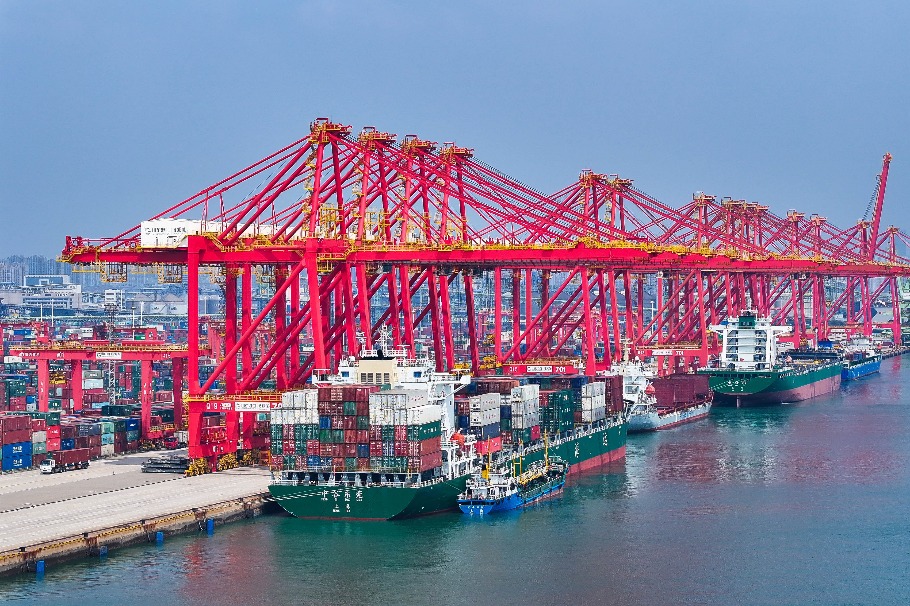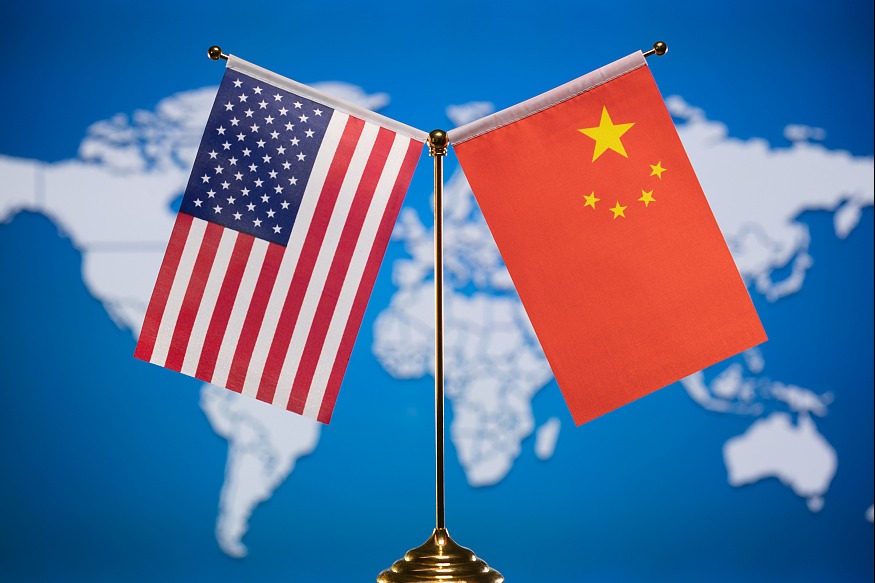China's growth vital for global development


Over the past more than four decades China has achieved an average GDP growth rate of 8.9 percent, much higher than the global average of 3.0 percent, contributing 24.8 percent to global economic growth. In the next five to 10 years, China will promote mutually beneficial cooperation and development to counter the zero-sum games being played by some Western economies.
China has made it clear that it will build a higher-level socialist market economy to stimulate market vitality and unleash the immense potential of medium- and long-term economic growth. If China makes major breakthroughs in upgrading its industrial, consumption and urban-rural structures, it will be well-positioned to achieve an average growth rate of about 5 percent over the next decade.
More important, the expansion and structural optimization of China's economy will have a significant impact on global economic growth. The International Monetary Fund estimates that every 1 percentage point increase in China's growth rate will boost global economic growth by 0.3 percentage points.
However, China's urbanization lags behind industrialization. Overall, China has entered the late stage of industrialization, but when it comes to urbanization, it is still in the middle stage of development. This is a major reason for the shortfall in aggregate demand. So now the focus should be on accelerating the urbanization process to ease the short-term growth pressure and unlock long-term growth potential.
Besides, given the possibility of the world economy facing a "lost decade", Asia's role and advantages in promoting free trade and global growth will become even more pronounced. With the release of the dividends of the Regional Comprehensive Economic Partnership and the China-ASEAN Free Trade Area 3.0, the process of establishing a China-ASEAN common market will be accelerated, and the positive spillover effects of the structural transformation and upgrading of the Chinese economy increased.
To counter the rise of unilateralism and protectionism in some countries, China has been resolutely promoting high-level opening-up. First, China has changed its policy — it no longer just attracts foreign investment but also encourages and supports both "bringing in" and "taking out" investment to further integrate the Chinese and global production networks. Second, it is shifting the focus of opening-up from manufacturing to trade in services to better promote free trade. And third, as part of its opening-up, China is now focusing more on the institutional opening-up of rules, regulations, management and standards for deeper integration into the Chinese and global markets.
A fully competitive market will help strike a dynamic balance between market supply and demand, achieving industrial upgrading. But some countries' habit of using "overcapacity" as a pretext to adopt protectionist measures will not only hinder global economic recovery but also hamper the development of emerging industries across the world.
Take the automobile industry as an example. In 2023, the auto exports of Germany, the United States and Japan accounted for 80 percent, 70 percent and 66 percent, respectively, of their total production.
In contrast, China's electric vehicle exports accounted for only 12.5 percent of its total production. According to the International Energy Agency's estimates, the global demand for global new-energy vehicles in 2030 will be nearly five times and the demand for power batteries more than five times China's total production in 2023. This means China will never have overcapacity; instead, it will promote technological cooperation and progress among countries, creating greater space for industrial collaboration.
Amid the global economic downturn and weak aggregate demand, the market has become the scarcest resource. With its more proactive and pragmatic opening-up, China aims to "make the Chinese market a market for the world, a market for sharing … a market for all". In the next step, China is likely to implement country- and industry-specific opening-up policies toward ASEAN, followed by further opening up to emerging economies, fostering a new pattern of development of free trade.
Free trade depends on the concerted actions to open up markets around the world. For example, the production of advanced chips is a highly internationalized process; it involves more than 1,000 working procedures and 70 cross-border collaborations. Certain countries' policies of "decoupling and breaking up the supply chains", and building "small yards and high fences" will not only prove futile in maintaining their own technological status but also severely damage the global chip industry and supply chains formed over the past 30 years.
According to the Boston Consulting Group, a complete "decoupling" from China will cost the US semiconductor industry 18 percent of its global market share and 37 percent of its revenue, along with a loss of 15,000-40,000 high-skilled jobs.
The development- and free trade-oriented Regional Comprehensive Economic Partnership has already become a new engine leading Asian economic integration. To fully release the dividends of the RCEP, it is necessary to upgrade the rules of origin as soon as possible, and to establish a transparent mechanism for the RCEP's enlargement.
The GDP and trade volume of China, Japan and the Republic of Korea account for more than 80 percent of the RCEP's total. So the three countries should bear in mind the broader perspective of Asian cooperation, remove all kinds of interference and take the initiative to implement unilateral opening-up measures under the RCEP framework, and accelerate the negotiations on the China-Japan-ROK free trade agreement.
This year marks the 30th anniversary of the signing of the Marrakesh Agreement Establishing the World Trade Organization. However, the WTO today faces the most severe challenges since its establishment as its trade negotiation, trade policy review and dispute settlement mechanisms are stalled. There is a need therefore to not only revive but also strengthen the WTO's mechanisms so the global trade body plays the core role in the multilateral trading system.
Moreover, the technological revolution has changed all economic operations, from production, consumption and circulation to distribution. In particular, data have become an important factor of production, and computing power has emerged as a new and important productive force. Digitalization, automation and remote operations are gradually becoming the norm in market models.
China is the promoter of and contributor to global digitalization, with the country's digital economy estimated to account for 71.6 percent of its GDP by 2035 and the AI industry expected to reach 1.73 trillion yuan ($242.92 billion).
To adapt to the trend of digital transformation in service trade and improve global digital governance with a development-oriented approach, it is necessary to establish free, convenient and secure digital trade rules. As one of the fastest-growing countries in digital trade, China has applied to join the Digital Economy Partnership Agreement. Because if it is a member of DEPA, it can expand cooperation on digital economy with other countries.
The next five to 10 years will be full of both uncertainties and certainties. While major country politics and geopolitical competition have been increasing uncertainties, China's and Asia's development has increased certainties. And China's efforts to build a high-level socialist market economy will further increase the certainties, and help unleash the country's huge growth potential. China's growth will not only foster an international environment that is amicable to its own development, but will also enable it to make more contributions to global development.
The author is president of China Institute for Reform and Development.
The views don't necessarily reflect those of China Daily.
If you have a specific expertise, or would like to share your thought about our stories, then send us your writings at opinion@chinadaily.com.cn, and comment@chinadaily.com.cn.
































